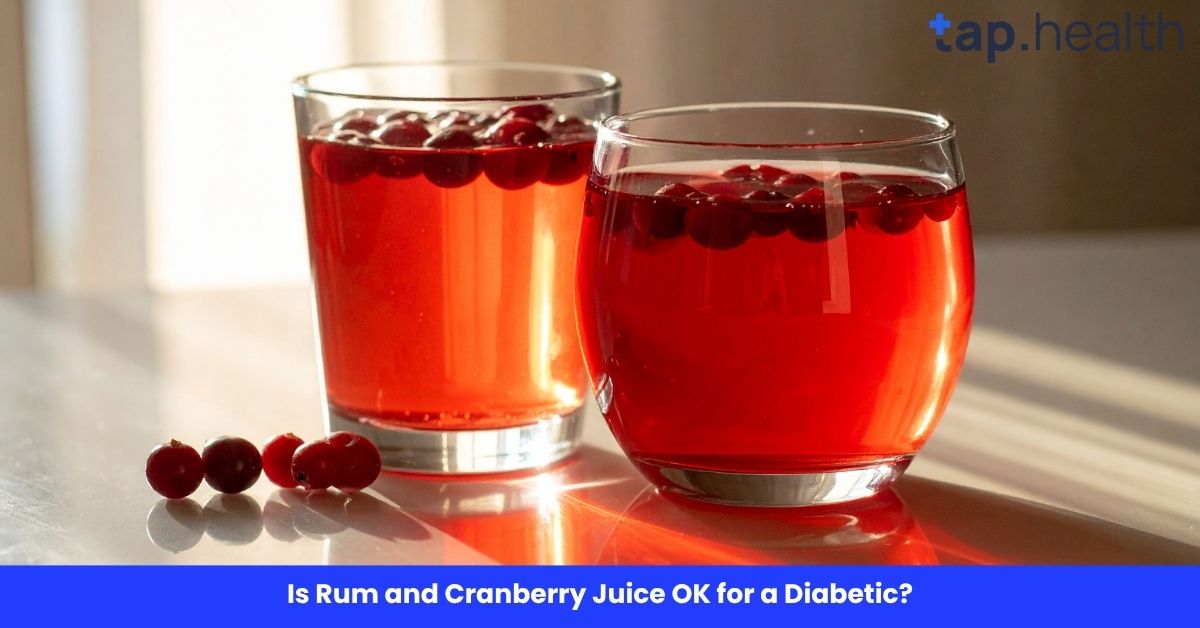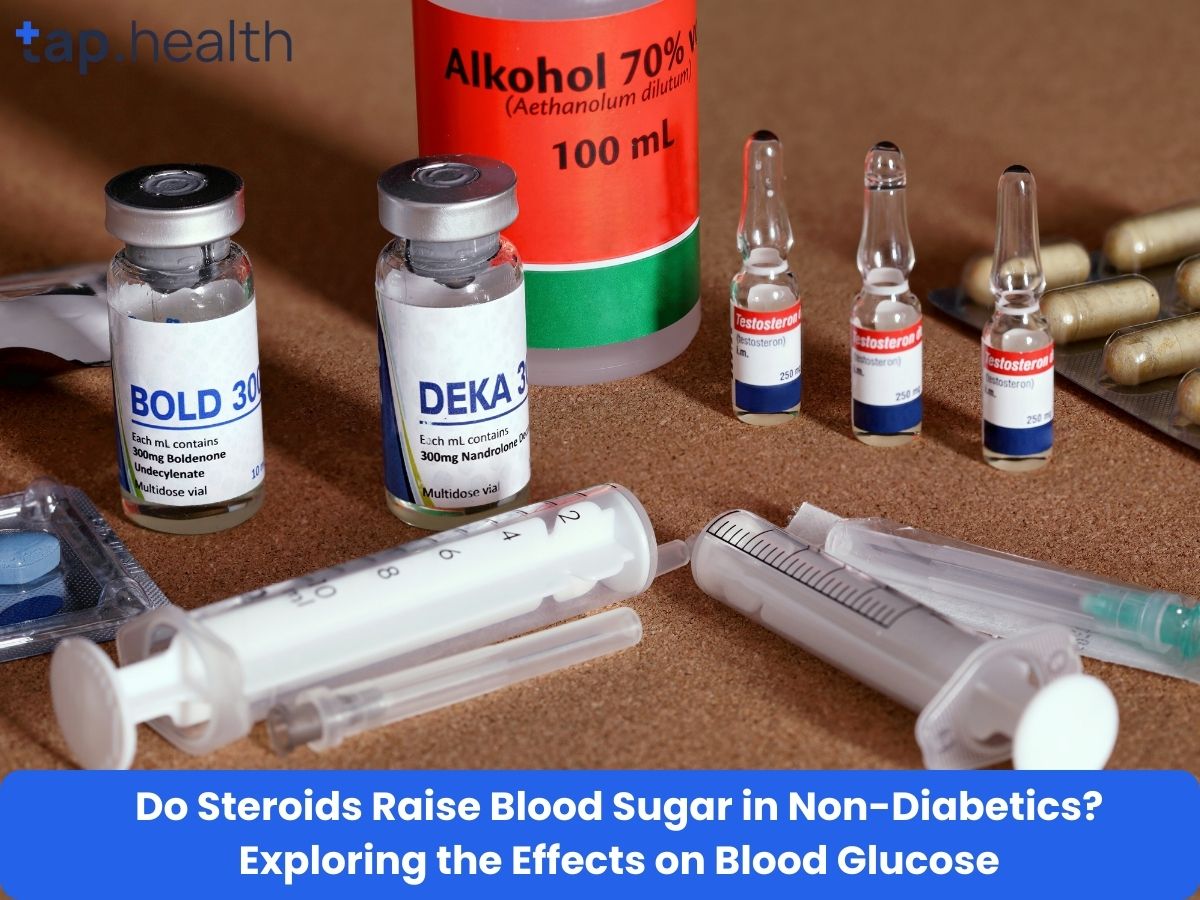Many people enjoy a refreshing cocktail, and one popular choice is rum and cranberry juice. But if you have diabetes, you might wonder:
Diabetes management can be tricky, especially when it comes to beverages. Many of us enjoy a refreshing cocktail now and then, and rum and cranberry juice is a popular choice. But if you’re diabetic, you may wonder: Is rum and cranberry juice safe for me?
In this article, we will answer this question in detail, breaking down the effects of both rum and cranberry juice on blood sugar levels and offering practical advice for diabetics who enjoy their drinks. Let’s dive into the health impacts, the possible risks, and how you can make the right choices.
What is Diabetes? A Quick Overview
Before we dive into the specifics of rum and cranberry juice, it’s essential to understand what diabetes is.
Diabetes is a chronic condition where your body either can’t produce enough insulin (Type 1 Diabetes) or can’t use insulin properly (Type 2 Diabetes). Insulin is crucial for regulating blood sugar levels. When insulin doesn’t function well, your blood sugar levels rise, which can lead to serious health complications over time.
For people with diabetes, managing blood sugar is critical. Certain foods, drinks, and habits can cause spikes or drops in blood sugar levels, so it’s important to make informed choices.
How Does Alcohol Affect Diabetics?
The Impact of Alcohol on Blood Sugar Levels
For diabetics, alcohol can have both positive and negative effects on blood sugar. When consumed in moderation, alcohol can cause a temporary rise in blood sugar levels. However, alcohol can also interfere with how the body regulates blood sugar, potentially causing low blood sugar (hypoglycemia) in the hours after drinking.
Here are some key points about alcohol and its effects on blood sugar:
- Initial Spike: Alcohol, especially sugary cocktails, can cause a rapid spike in blood sugar.
- Delayed Hypoglycemia: After a few hours, alcohol can lower blood sugar levels, sometimes to dangerously low levels, especially in people using insulin or other diabetes medications.
- Metabolism Impact: Alcohol is processed by the liver, which can affect how it releases glucose into the bloodstream.
Therefore, it’s crucial for diabetics to monitor their blood sugar levels closely when consuming alcohol.
What Are the Health Benefits of Cranberry Juice?
Cranberry juice is often touted as a health drink, especially for urinary tract health. But how does it fit into a diabetic diet?
Nutritional Profile of Cranberry Juice
Cranberries are low in calories and rich in antioxidants, particularly Vitamin C. They also contain fiber, which can slow the absorption of sugar into the bloodstream, helping to prevent spikes in blood sugar.
However, most commercially available cranberry juices are sweetened, which adds sugar to the mix. Unsweetened cranberry juice can be a good option for diabetics because it contains fewer sugars and has minimal impact on blood glucose levels.
Benefits for Diabetics
- Rich in Antioxidants: Cranberries are packed with antioxidants that can help reduce inflammation and protect against heart disease, which diabetics are more prone to.
- Supports Urinary Health: Cranberry juice has long been associated with urinary tract health and can help prevent infections, which are more common in diabetics.
- Low Glycemic Index: Unsweetened cranberry juice has a low glycemic index, meaning it won’t cause a sharp rise in blood sugar levels.
How Does Rum Affect Blood Sugar Levels?
The Role of Alcohol in Rum
Rum, like other alcoholic beverages, can affect your blood sugar in several ways:
- Initial Sugar Spike: Some rums, particularly flavored rums or rum-based cocktails, contain added sugars, which can spike blood sugar levels.
- Sugar-Free Options: Plain rum (without added sugar or mixers) does not directly affect blood sugar levels but can still impact liver function and insulin sensitivity.
How Rum Affects Diabetics
- No Carbs in Pure Rum: If you’re drinking pure rum without any sugary mixers, the drink itself doesn’t contain carbohydrates that directly affect your blood sugar.
- Impact on Insulin Sensitivity: Chronic alcohol consumption can lead to impaired insulin sensitivity, which makes it harder for your body to use insulin effectively. This is a concern for people with Type 2 diabetes.
- Moderation is Key: Drinking rum in moderation is essential for diabetics. Heavy drinking can lead to unpredictable changes in blood sugar levels and increase the risk of long-term complications.
Is Rum and Cranberry Juice Safe for Diabetics?
Now that we understand how alcohol and cranberry juice affect blood sugar levels, let’s look at the combination of rum and cranberry juice.
Cranberry Juice + Rum: What to Watch Out For
- Sugar Content in Cranberry Juice: As mentioned earlier, many commercially available cranberry juices are sweetened. The added sugar can cause a rapid rise in blood sugar levels. Therefore, if you’re diabetic, it’s best to choose unsweetened cranberry juice or use a sugar-free mixer.
- Calories and Alcohol Content: Rum is calorie-dense, and when mixed with sugary cranberry juice, the resulting cocktail can be high in both sugar and calories. This is something to be mindful of, especially if you’re watching your weight or managing insulin resistance.
- Moderation is Crucial: Drinking alcohol in moderation is always key for diabetics. Too much alcohol can cause hypoglycemia, especially if you’re on insulin or other diabetes medications. It’s important to eat food alongside alcohol to avoid sudden blood sugar drops.
Tips for Diabetics When Drinking Rum and Cranberry Juice
If you’re a diabetic and want to enjoy rum and cranberry juice, here are some tips to make it safer:
1. Choose Unsweetened Cranberry Juice
Opt for unsweetened cranberry juice to avoid unnecessary sugar. If you can’t find it, you can dilute regular cranberry juice with water to reduce sugar levels.
2. Watch Your Portion Sizes
Stick to small servings to minimize the impact on your blood sugar. A standard serving of rum is around 1.5 ounces (45 ml), and it’s best to limit sugary mixers to keep the drink balanced.
3. Monitor Your Blood Sugar Levels
After drinking, check your blood sugar levels to ensure they don’t fluctuate too much. Alcohol can cause blood sugar to drop a few hours after consumption, so keep an eye on your glucose levels to avoid hypoglycemia.
4. Eat a Balanced Meal
Always consume alcohol with food. Having a meal that includes protein, fiber, and healthy fats can help stabilize your blood sugar and prevent sharp spikes or drops.
5. Limit High-Sugar Mixers
Mixing rum with other high-sugar ingredients (like sweetened sodas or syrups) can cause an even bigger rise in blood sugar levels. Stick with low-sugar mixers or opt for club soda, sparkling water, or fresh lime juice for a refreshing alternative.
Real-Life Scenario
Consider a person with type 2 diabetes attending a weekend party. They choose a rum and cranberry cocktail thinking it’s light. However, after a few drinks made with sweetened cranberry juice, their blood sugar levels spike significantly.
If they had opted for unsweetened cranberry juice or mixed their rum with sparkling water and a splash of lime, the impact on blood sugar would have been much smaller.
This example highlights how simple swaps can help diabetics enjoy social events without compromising their health.
Expert Contribution
Endocrinologists and dietitians advise that people with diabetes can consume alcohol in moderation—but should do so with food and monitor glucose levels closely.
Experts from the American Diabetes Association (ADA) note that alcohol can initially raise blood sugar (if mixed with sugary drinks) and later lower it, especially overnight.
They recommend:
- Sticking to no more than one drink per day for women and two for men.
- Choosing sugar-free mixers like soda water, tonic, or unsweetened juices.
- Avoiding cocktails with syrups, added sugar, or sweet liqueurs.
Recommendations Grounded in Proven Research and Facts
- Use unsweetened cranberry juice or a splash of fresh cranberry instead of sweetened juice.
- Never drink on an empty stomach—pair your drink with protein or fiber to prevent sugar crashes.
- Limit to one serving (1–1.5 oz rum + 4 oz mixer).
- Monitor your blood sugar before bed after drinking, as alcohol can cause delayed drops.
- Hydrate well—alternate alcoholic drinks with water.
- Consult your doctor before drinking if you’re on insulin or medications like metformin, as alcohol can interfere with how these drugs work.
Frequently Asked Questions (FAQs) on Is Rum and Cranberry Juice OK for a Diabetic?
1. Can I drink rum and cranberry juice if I have diabetes?
Yes, you can, but it’s important to drink in moderation. Choose unsweetened cranberry juice and watch your portion sizes to avoid blood sugar spikes. Always monitor your blood sugar levels after drinking.
2. What’s the best type of cranberry juice for diabetics?
Unsweetened cranberry juice is the best choice for diabetics. It has little to no sugar and won’t cause a spike in blood sugar levels. Avoid cranberry juice with added sugars or sweeteners.
3. How much rum can a diabetic drink safely?
Moderation is key. One standard drink of rum is about 1.5 ounces (45 ml). If you are on insulin or other diabetes medications, consult with your healthcare provider to determine what’s best for you.
4. Can alcohol cause high blood sugar in diabetics?
Alcohol can cause a temporary rise in blood sugar, especially when mixed with sugary drinks. However, excessive alcohol consumption can lead to a drop in blood sugar after a few hours. It’s essential to keep an eye on your levels and drink responsibly.
5. Can diabetics drink cocktails?
Yes, but it’s important to choose cocktails with low sugar content. Opt for sugar-free mixers and be mindful of portion sizes to avoid blood sugar spikes.
Conclusion: Is Rum and Cranberry Juice OK for Diabetics?
Rum and cranberry juice can be enjoyed by diabetics if consumed mindfully. Choose unsweetened cranberry juice, drink in moderation, and always monitor your blood sugar levels to ensure they stay stable. Like any alcoholic beverage, it’s all about balance and moderation. Always consult your healthcare provider before making changes to your diet or drinking habits.
If you love cocktails, you can still enjoy a rum and cranberry juice mix, but make sure to make informed choices to protect your health and well-being.



